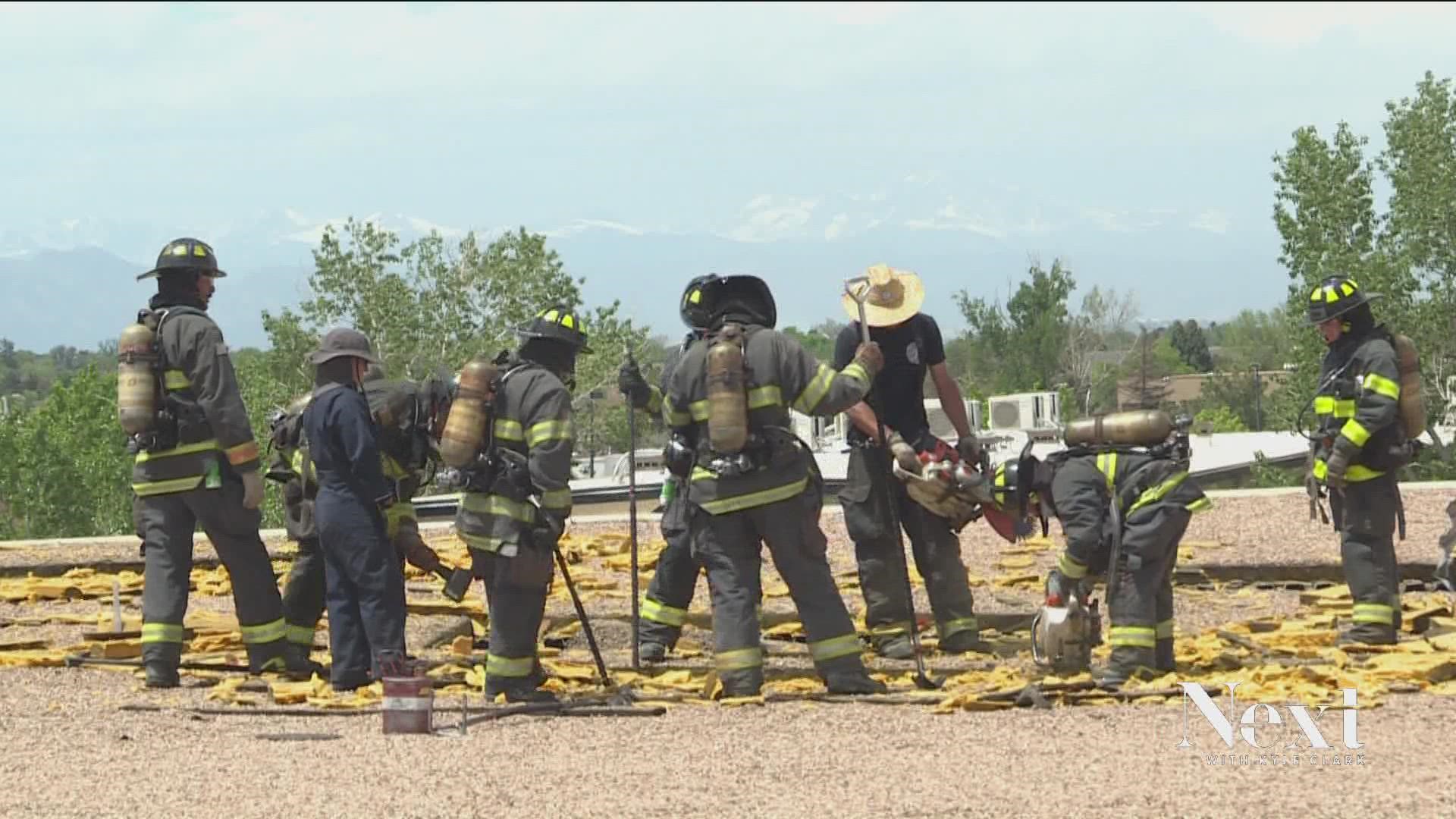DENVER — For years, firefighters in Denver were tangled in a system designed to help them if they were diagnosed with cancer. Instead, it seemed to have the opposite effect for some diagnoses.
Now firefighters and the city are working to streamline the program so that it helps when firefighters need it the most.
There's been a life changing evolution within the fire industry.
Denver's Deputy Fire Chief Kathleen Vredenburgh said it's all about being honest about the job.
"The World Health Organization this summer made the designation that the act of firefighting is carcinogenic," she said.
In 2007, Colorado passed a state statue that made it so eligible firefighters could get workers compensation when diagnosed with cancer after five years of employment as a firefighter.
They had to be diagnosed with one of five types of cancers: brain, skin, digestive system, hematological system, or genitourinary system.
"Prior to this," Devron McMillin, with the City of Denver, said, the system was "not accepting cancer."
"With workers compensation," she added, "Once a claim is approved, it pays for all medical bills, [and] certain incidentals like mileage."
Over the next decade, McMillin said firefighters started pointing out problems. 27 claims were accepted. 27 were denied. Four are still pending.
Firefighters were trying to prove they got job-related cancers while fighting cancer.
They were waiting as long as three to six months to hear if they would get workers compensation, during which time employees are paying out of pocket, McMillin said.
If they were denied, they relied on their own insurance continued paying out of pocket for expenses as well.
"The panic," Vredenburgh said, "Not knowing what your future is going to be, worried about your family, your own well being. It shouldn't be that you are also worried about 'do I have income, a job? Will I be taken care of?'"
So 10 years after the first statue was passed, the state legislature passed an amendment to launch the Voluntary Cancer Award Program, which allows cities and special districts to pay a premium to a statewide program.
It's designed to make the process easier and quicker, in some cases cutting the wait time down by half, for firefighters to get help. However, Denver Fire was evolving and hiring more women.
They're right above 8% now, with increasing commitment, according to Vredenburgh.
Breast cancer wasn't on the list of cancers eligible for coverage with the newer program, and a couple of women within Denver Fire had started falling sick.
"Unfortunately they weren't covered under the current presumptive laws," Vredenburgh said.
That prompted this latest evolution to expand which cancers are covered and the number of firefighters who can get help.
"We matter, and we are going to be taken care of," Vredenburgh said.
Breast cancer was added to the Voluntary Cancer Award Program last year, and thyroid cancer will be added next year, backed up by research and medical evidence.
While the City of Denver is working on making those statewide changes, Denver Fire is currently talking with city council about opting into the Voluntary Cancer Award Program.
VCAP provides a one-time payout that's easier to obtain. Worker's comp can cover more, but is harder to obtain.
The state's Division of Workers' Compensation wrote:
"The Division of Workers' Compensation did not take a stance on the VCAP bill. The Division occasionally hears complaints about the complexity and difficulty of the Workers' Compensation system in general, but they are rare. We receive around 36,000 workers' compensation claims a year. About 90% of those are handled strictly through the administrative process, with no need for lawyers or hearings before a judge. The vast majority of cases move through the system without any difficulty, with injured workers receiving the benefits they are entitled to without the need for litigation.
In response to your second question, individuals who believe they contracted cancer (or any serious illness) as a result of their work, actually face a bigger challenge. It's extraordinarily difficult to prove the cause of cancer. This is why so many jurisdictions have enacted presumption laws for firefighters (like VCAP). The voluntary program removes any dispute over the cause of the cancer. Firefighters employed by an agency which participates are eligible for benefits following a diagnosis. While the benefits are less than those offered by workers' compensation, they are substantially easier to maintain. Workers in other industries not covered by a presumption face the difficulty of proving that their cancer was caused by their work.
The workers' compensation system can be adversarial in cases where there's a question about the cause of an injury (i.e., was it work-related or not?) or a dispute over the appropriateness of medical care. In those cases, the Division of Workers' Compensation does everything it can to resolve those disputes as quickly and efficiently as possible while still ensuring that both workers and employers receive full due process."

